GROpinion
What a newcomer must know & do to win elective position in South East Nigeria
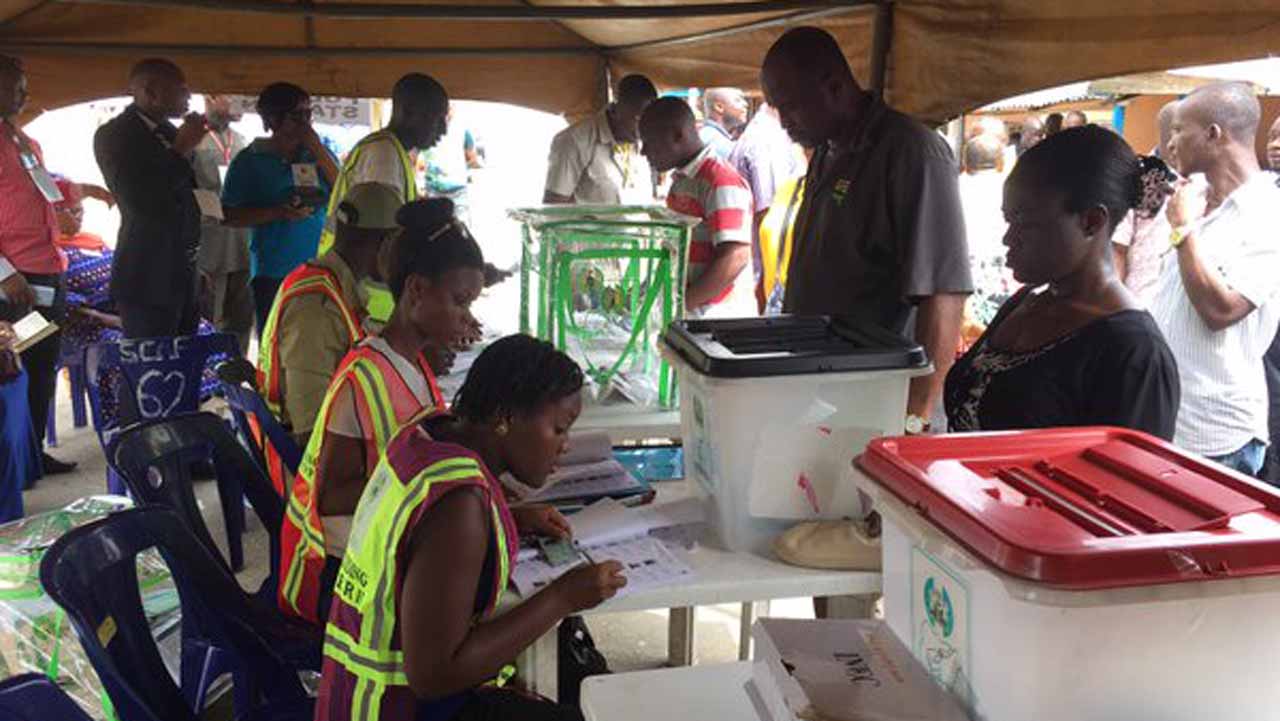

By Anayo M. Nwosu
There are many young people out there desirous of contesting for various elective positions in Nigeria in order to make the desired difference.
Unfortunately, many of them especially those from the South East region don’t know how to go about it. I have striven to assist by penning down the following:
UNDERSTANDING THE TERRAIN:
The Igbos live in families. A handful of related nuclear families make up Umunna which is the primary organisational structure in Igbo land.
Umunna is headed by a natural Obi who is usually the first son of the patrilineal families that joined to form the Umunna. The obi’s father must have been a first son. However, an obi while alive could pronounce any of his sons his successor. Upon death, the pronounced becomes the obi and shall be succeeded by his first son was disinherited by his own father.
The Obi is like the ceremonial head of the Umunna or a union of extended patrilineal families. There is also an elected chairman and other executives who together with the obi rule the ụmụnna.
A handful of related Umunnas makes a community.
A community, like an Umunna, is governed by an Obi with elected executives headed by a president fondly called President General or PG. The community obi is the first son of the first Umunna regarded as the first son of their progenitor.
One or few communities are grouped as a ward depending on the constituent population.
Based on the population as delineated by electoral body, a ward or group of wards produces a councillor for the local government.
Each ward could have one or more polling stations depending on the population of registered voters.
Related communities make up a quarter or a larger community.
Some larger communities or quarters, in some states like Imo, have been elevated to autonomous communities which is equivalent to a town.
A union of quarters makes up a town which has a natural or selected traditional ruler known as Igwe, Eze or Obi. Together with the traditional ruler, the town union executives led by a president governs the town.
A town or a group of towns makes up a local government area (LGA).
The local government is governed by a chairman working together with elected councillors.
A local government chairmanship candidate must win the majority votes cast in his/her LGA and must also win 1/3 of votes cast in at least 2/3 of council wards.
In Nigeria, a state is an agglomeration of local government areas. There are 774 LGAs in Nigeria.
The population size of a local government area determines how many state legislators it would produce while a local government or more consists a federal constituency which produces a member of Federal House of Representatives.
All the local governments in a state are grouped into three zones namely: north, central and south senatorial zones. Each zone produces a senator and no state produces more than three senators.
In state elections, a governorship candidate must win the majority votes cast in his state and one-third of votes cast in 2/3 of the local government areas of his state. Also, the presidential candidate must not only win the majority votes cast in the whole country but also must win 1/3 of votes cast in 2/3 of the states of the federation.
WHERE THE WORK LIES
A newcomer to politics must do some ground work. Depending on his or her target political office, an aspirant must make a list of the names, phone numbers and addresses of all the Obis and Chairmen of every Umunna in each community in every town. He/she should also have a database of all the Obis and political heads of each Community, Quarter, Autonomous Community or Town. He should be in contact with them as out of touch is out of touch is out of votes.
A smart aspirant should include in his/her database, the details of former elected presidents of the Communities, Quarters and Town unions. They may be out of office but could be very influential.
The above mentioned are the building blocks of the electorates regarded as barracks that remains when “soldiers or politicians come and go”
A serious aspirant in a state like Anambra would have to start early to meet with all mentioned strata of the electorates. Starting with the traditional rulers, town union executives, community obis and their executives, obi Umunna and their executives.
The aspirant must approach each stratum as afore listed with minimum of two cartoons of beer, one cartoons of soft drinks and a bottle of good hot drink.
Let no newcomer be shocked if the same electorates he or she is planning to redeem ask for rice, salt, tomatoes or even raw cash. They have been used to such since 1957. Spraying money during campaigns is a tradition in South East and elsewhere in Nigeria. One can lose an election in some areas because he refused to provide the essential commodities.
Recall that had to feed the 5,000 to drive home his message. That singular act attracted more followers the next day. Remember that after eating to their fill, the appreciative crowd wanted to crown him a king there and then. He had to disappear to avoid that.
However, the aspirant needs to make his message very clear and sweet to the ears. During each visit to the stakeholders, he would introduce himself properly and talk about his manifestoes which must include a solution to a nagging or general problem of the hosts. Hence the need for a thorough research.
The aspirant should request to address the whole assembly of Umunna if the target political post is House of Assembly or Local Government Chairman or to meet with the entire community if the aspiration is for House of Representative or Senate or even Governorship. A paid town crier is usually at his service.
Quarter or Community level general assembly address is very effective after all the traditional and political heads have been visited in their homes in what Igbos called “ịkpụpụlụ okpu” or “doffing the cap” or paying due respect to the deserving.
These courtesy meetings and the gifts require money and vehiclar logistics which the aspirant must find means of financing.
Fundraiser and crowd funding from people who believe in the message of the contestant would come handy. It would be very difficult for a young man or woman with a mission not to ask for financial assistance for the mission.
The aspirant should have a representative or co-ordinator at the Ụmụnna or Community level. If he is lucky to pick a loyal, hard working and responsible rep at this level, who energetically canvass for him, the job is half done. In most cases, the representatives or agents across the electoral constituency, as known as structure, need to be paid some allowances for transport and personal requirements even if they work as volunteers.
Aside from his agents or pointsmen, there are scattered in all towns, many influencers from various communities and a smart aspirant must have a list of them.
One may not be able to convert these opinion leaders or influencers but they must be spoken to for support.
A serious aspirant must have a list of all the owners of beer parlours in a town and devise means to reach out for their support. They are the surest sources of intelligence or critical political information.
THE CHURCH FACTOR
The biggest unregistered political parties in Igbo land are the religious bodies. For instance, anyone who makes an enemy of Catholic Church in Imo, Anambra and Enugu States can never win any election through free and fair means.
The faithfuls rarely disobey their bishops and parish priests.
A detailed politician should have a list of all the parish priests of churches of different denominations at the archdeaconry or deanery levels. The men of God no longer mind their ecclesiastial businesses. They must be met either privately or publicly at their functions to plead for their understanding.
The aspirant should ready to appear godly and must prove prior financial support for the church or promptly demonstrate one.
OBAMA STYLE
An aspirant could raise an army of youths, mostly students and unemployed to canvass support for him or her in their various villages.
An aspirant should download the voters register whenever INEC publishes it and use technology to reach the electorates via SMS and direct phone calls. He must maintain call centres manned by volunteers or paid staff who shall daily engage voters.
Jehova Witness method of house to house campaign to voters on INEC register makes serious sense. Each voter spoken to is ticked off and be called at at least twice before election day.
From INEC records, less than 250,000 votes are all that is required to win a governorship election in the south East and a little less for legislative positions.
One should not overly rely on this modern approach due to the near primitive setup of our clime but some votes could be garnered from such efforts.
RRELIANCE ON GODFATHERS
There are everywhere in Igbo land, many political heavy weights who over the years, have built election winning structures in their towns. They also have influence all over their senatorial zones or state.
These godfathers have all the heads of Ụmụnna, Community and Towns on their payroll. They also have many opinion leaders at their beck and call. Some are on monthly salaries. They award scholarships and settle medical bills of their fellow citizens. They announce or advertise such good deeds for accolades. Some of them are employers of labour and are generally regarded as go-to chiefs. People normally would ask them who to vote for and they gladly make choices for them.
It is difficult to win a constituency where these chieftains are holding sway.
Late Lamidi Adedibu and Late Oloye Saraki of Oyo and Kwara respectively typified life godfathers that have a statewide influence.
We all know the living godfathers in our localities. They boast about it and are easy to identify.
An aspirant who needs to win in the areas under the firm control of the political fixers must go beg them or “pụọ rụ isi anị” to the votelords or would be disgraced.
These votelords control machinery of terror and have a way of getting INEC to employ their stooges as adhoc staff during elections to help them achieve their objectives. They are so powerful to influence the postings of law enforcement agencies heads in their various states or area commands.
When a man promises or collect huge funds from a political party or contestants to deliver his constituency, note that the man is a votelord.
The only way to neutralize the godfather is by liquidation via federal might or by death. But they don’t usually succumb to bullets or to matchete wielding assassins as they are highly fortified. They have odeshi and ọdụ ụna and can only die naturally.
However, an aspirant could scheme to get to his political destination through the help of an outgoing incumbent as President Yar’Adua’s, Abia’s Gov. Okezie Ikpeazụ, Anambra Gov Willie Obiano and Enugu’s Gov Ugwuanyi. In this case the incumbent would lap or carry a newcomer on his back, foot all the expenses, get the support of all key stakeholders to get the newcomer elected.
A newcomer like Imo’s Ugwumba Uche Nwosu might not be that lucky chiefly because of the baggage of his sponsor and the fact that Catholic Church and notable principalities feel insulted and have decided not to see that happen.
WHEN DETERMINATION PAYS
Seeing the enormous work or uphill task they need to climb to win an election, the hitherto zealous young persons either back out as “lazy youths” or kowtow to the votelords or godfathers who get them to swear to dangerous oaths and evil agreements.
Those youths who are lucky to have been appointed to federal appointments could have it easier by either using the federal terror logistics to cow the votelords or get the president or the state governor to negotiate with the godfather on their behalf. Some oil wells, juicy contracts or a simple blackmail would do the trick.
Given the state of our enlightenment and political awareness, it would be very difficult for a self promoted youth to immediately declare to contest for an elective position and win in the first year of trial. The desiring aspirant needs to start early enough to build own structure.
It requires work hard.
More crucially, a newcomer must invest in ways of gathering evidence of rigging by opponents . Investment in mystery camera and infiltration of votelords’ camp would be rewarding in court.
Vigilance is also key because the godfathers resort to rigging when they notice that their candidates are losing. They must deliver or risk being demystified.
There is nothing wrong in organising an army of young people to watch out for thugs who come to snatch ballot boxes. The thugs could be given a corrective beating.
All things being equal, the message is that an aspirant needs to identify all the religious, traditional, social and economic units in his electoral constituency and devise ways of conveying his message.
Two to four years of preparation may be required except if the aspirant is ready to be compromised or be helped by votelords and at a huge cost.
The important thing is for an aspirant to come up with plans and a message. Who knows? The electorates might be hooked up to the message earlier than envisaged.
But the message must resonate and cut across all religious, ethnic and sectional divides for it make desired impact.
Let that articulate, charismatic, resourcesful and dogged youth stand up and be counted. That youth who is excellent in achieving great results through people is the one that can succeed.
Columnists
Cybersecurity in 2024: Towards Ever Greater Sophistication of Tactics


Writer: CHESTER WISNIEWSKI, Director Global Field CTO, Sophos
With 2024 fast approaching, what are the results for 2023 and what are the developments in the threat landscape for this new year?
The year 2023 was marked by persistence in the tactics of cybercriminals, with the predominance of ransomware, the exploitation of vulnerabilities, theft of credentials and even attacks targeting the supply chain. The common point in all his attacks is their formidable effectiveness.
It is therefore essential to ask what trends will persist in 2024 and what strategies businesses should adopt to deal with these future cyber threats.
Between persistent trends and evolving cybercrime tactics
In 2024, the threat landscape is not expected to change radically, particularly with regard to attack typologies and criminal tactics and procedures.
Criminal groups still primarily focus their attention on financial gains and ransomware remains their weapon of choice. These cybercriminals tend to take the easy way out by opportunistically attacking unpatched security vulnerabilities.
The recent Citrix Bleed attack demonstrated the agility of cybercriminals when it comes to quickly and effectively exploiting these new vulnerabilities.
However, once patches are applied to these vulnerabilities, cyberattackers tend to revert to more common strategies of stealing credentials or, failing that, cookies or session cookies, which, while slightly slower, constitute always a proven means that allows them to penetrate within a system.
In 2024, however, we should expect increased sophistication in defense evasion tactics, particularly due to the generalization of certain technologies such as multi-factor authentication. These attacks will combine malicious proxy servers, social engineering techniques and repeated authentication request attacks or “fatigue attacks”.
AI and regulations will continue to shape cybersecurity
In 2024, the development of AI will have a positive impact on the efficiency of IT teams and security teams by enabling them to strengthen defenses and work more efficiently, including through the processing of vast volumes of data in the aim of detecting anomalies. It should make it possible to respond more quickly in the event of an incident.
Indeed, analysis of attacks in 2023 showed a shortening of the time between network penetration and the triggering of a final attack – using malware or ransomware. The need for rapid detection and response tools to prevent costly incidents is therefore essential.
Finally, regulatory developments could have a major influence on measures taken against ransomware. The need to take more substantial measures could push some states to penalize the payment of ransoms, which would represent a brake on malicious actors and change the perspective of companies in the event of an attack.
Other stricter legislation, such as the implementation of the European NIS2 Directive, is also expected to force companies to take additional measures, particularly regarding their abilities to collect data sets.
To protect themselves against increasingly rapid, effective and costly attacks, companies will need to strengthen their defenses by equipping themselves with tools that allow them to detect and respond to incidents more quickly.
The worsening cybersecurity talent shortage does not appear to be as serious as some studies claim. On the contrary, companies have implemented more lax hiring criteria and more open-mindedness in the recruitment process.
From this perspective, to guarantee their survival in a constantly evolving threat landscape, companies have every interest in establishing partnerships with cybersecurity experts whose main mission is to make the hyperconnected world safer, to advise and assist them. in setting up effective defenses.
GROpinion
The Internal Threat: The Hidden Face of Corporate Threats


Businesses today face many threats; but if those coming from outside are their main source of concern with a priority focus on ransomware, they too often forget to consider internal threats which can be just as devastating.
In fact, they take less time to assess the adaptability of their internal security measures in case a cyberattacker manages to break through their defenses from the inside and recover sensitive data that is easily accessible to him. So, what are the means to put in place to detect these threats and respond to them effectively?
The sources of these insider threats are diverse and very often undetected or detectable. They can thus be the result of negligence or even malice.
They can, for example, come from an implementation of relaxed security controls that do not apply to certain systems, or from a lack of logging and identification of these malicious activities.
Although, difficult to measure – since they are rarely the subject of dedicated reports – these internal attacks have already affected many companies.
What are the reasons for the appearance of these threats?
Intentionally or not, insider threats are legion. For example, when an employee carelessly forgets a USB key containing copies of critical information on the train, he then neglects to comply with all the rules in force.
This type of situation can be tragic for the company since there is therefore a risk of theft or public exposure of information that could lead to a violation of official regulations imposed by a governing body (usually GDPR, PCI and HIPPA) or by several regulatory bodies’ premises.
The company must then be extremely transparent by disclosing to its employees – and more broadly to the general public – that it has been the victim of a data breach within the organization, and it must also be held accountable. of all actions associated with this data breach.
But it can also be actions triggered intentionally for a wide variety of reasons. An employee may, for example, realize that he has the possibility of carrying out a malicious action in his workplace because of relaxed controls or because he has high visibility.
This type of situation can lead to the theft of confidential information belonging to the company. The employee then seizes this opportunity to harm the company with impunity.
Various flaws and patterns
Cybersecurity experts have identified three distinct insider threat motives which are revenge, greed, and inattention.
The first two reasons include, for example, intentional and accidental acts, and are more likely to occur following a dismissal or a resignation. However, these reasons vary according to the type of activity of the company.
In the case of the defense sector, it can be corruption or espionage, unlike the ICT sector, where commercial data theft is more widespread.
Employees in charge of selling products and solutions can thus save their customers’ contact details in files and programmers can steal the source code. Despite their media coverage, on the whole, cases of espionage or sabotage remain, fortunately, exceptions.
More generally, data leaks are often caused by insider threats, when sensitive information belonging to the company becomes “uncontained”, when it should be classified confidential according to the operational context.
This information then becomes “public” and people whose position has nothing to do with it can consult it. Very often, when businesses are faced with such accidental data loss or leakage, it is the result of carelessness, inadvertence or clumsiness – such as the loss of mobile devices, USB storage media or public exposure of repositories stored in the cloud.
The classic example of accidental data release comes from the use of the “To” and “CC” fields when sending an email to multiple external recipients, where personally identifiable information is exposed to all of these recipients; a situation that could have been avoided by using the “CCI” (blind copy) mode.
Finally, data destruction is also a typical action where the integrity and availability of data is taken away from the business.
This has the effect of preventing him from accessing critical information, which can directly impact the operational capacity of the company. While this activity is mostly associated with ransomware operators, it can also be attributed to insider threats.
It should be borne in mind that there are many reasons that could lead to such acts, but the main reason remains that the data is generally stored in a weak way, which allows too many people to access information that has nothing to do with the tasks entrusted to them.
These people can steal sensitive data for revenge, but also destroy it or remove it from the company or even try to extort its return.
How can we best respond to these threats?
The implementation of a strategy to prevent these internal threats remains difficult to implement, since once the attack has been launched, anticipation and control are already outdated. It is therefore extremely important to set up preparation sessions aimed at determining the impact of these attacks.
Thus, training employees in the correct use and understanding of internal company systems and processes can go a long way towards avoiding errors associated with accidental data leaks.
In addition, it can be useful to turn to several solutions and tools such as file and document management systems to better manage the critical data that the organization has in its possession. ZTNA limits access to only required tools/services/apps rather than everything on a company’s LAN.
It is also possible to employ Data Leakage Prevention (DLP) tools, capable of preventing accidental data leaks – except in the case of intentional theft. XDR systems and firewalls can also be very useful as part of the disaster prevention and recovery plan because they allow DLP to be implemented and log access and data movement at the same time. Their actions facilitate forensic work, particularly in understanding failures and their consequences.
Finally, the implementation of technical controls capable of regulating access to data and systems that contain sensitive information, as well as the monitoring of the results of these controls and the responses to violations of the security policy contribute to the detection of ‘a malicious attack in progress.
To protect their company and their employees from these internal threats, managers must imperatively limit access to the data to the persons concerned and ensure the implementation of strict controls on the most sensitive data, while providing them with the support they need.
In essence, therefore, the right balance must be struck between people, process and technology, since any imbalance can favor the introduction of instability, as well as an easier increase and spread of risks – whether they either external or internal to the company.
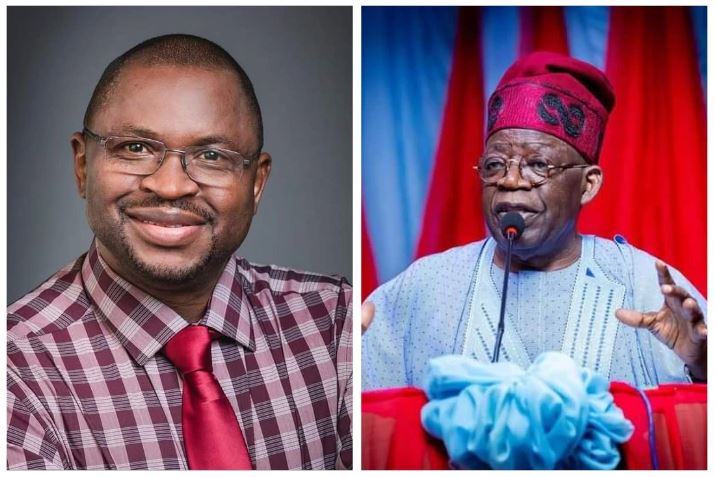

I’ll start on this by referring you an earlier piece I had written on 17 April, 2021 about Professor Farooq Kperogi when he attempted to hoodwink his readers and Professor Pantami that he was the latter’s friend but still went ahead to disparage him by spewing lies and supposed private matters on the Professor, the piece can be read here.
At that point, I had just switched from being his ardent fan to seeing him for who he really is, a propaganda merchant who thrives on the docility of Nigerians to cash out.
Kperogi had to acknowledge that article as it bursted his little games on 24 April, 2021 in his column tagged ‘On my friendship with Pantami’ and which can be read here.
I read Kperogi piece of today 11th February, 2023 where he attempted to as usual disparage Buhari’s naira policy and linked it as a ploy to stop a BAT and I found the analogy in it very ludicrous to say the least. I wonder why Kperogi has developed a permanent feeling and understanding that Nigerians are extremely daft and so he could spew anything at them albeit hypocritically after cashing out his little coins behind the scene.
Kperogi is a supporter of Tinubu but just like so many Nigerians who share his type of double character, he is finding it difficult to come clean about it, so he is using mind games this time around to blame Buhari and his policy as the reason why Tinubu would fail even though according to him, he doesn’t want it but he would prefer that the failure of Tinubu occurs through ballots and not through sabotage.
However, what Kperogi and the likes who don’t have the audacity and criticality to formulate critical campaign strategies to market Tinubu don’t understand is that the suffering of Nigerians which had largely made them to make up a mind did not start with the naira scarcity and it’s attendant suffering which in my opinion is over bloated by the likes of Kperogi and other propaganda merchants to unfairly blackmail Buhari into succumbing to perhaps use state resources to install Asiwaju as president and that won’t happen because in reality Nigeria has long moved away from such. You have to have some level of popularity to rig elections in any society and rather than campaign enough to get the masses support for Asiwaju, Kperogi and the likes believe the victory must only be gotten through blackmail.
While on my way back from office yesterday, I critically examined the menial marketers like ‘suya’ sellers and the rest, and I saw a normal activity going on as I used to know it and I wondered in my mind where the excessive suffering that was been hyped was? It has also been established and I know that those people in the remote villages that Kperogi attempted to refer to do not need more than one to five thousand Naira to transact and while in the beginning things got a little rough, POS merchants have since gotten cash for them and things are normalizing, so I’m sure that the whole propaganda about suffering is being spewed by some political elements who perhaps see free and fair contest as a threat to their victory and such narrative has to stop quickly because in recent past it was same kind of narrative that made Jonathan loose elections, Nigerians desist such fearful narrative.
Furthermore, Kperogi alluded to the fact that Asiwaju always used billion vans to win his way through elections, assuming without conceding that was true as coming from him, is Kperogi then telling us that he supports a corruption of the electoral system? If anything, is ensuring a free and fair contest by Buhari not worthy of commendation? I can bet you Nigerians especially those from
Northern Nigeria have accepted this policy not because there are not minor and temporary discomfort about it but because they see it from the prism of Buhari doing what he ought to have done a long time ago which was to annihilate corruption and its practices, so it appears the people were ready to bear this brunt in as much as it guarantees free and fair contest.
Speaking about a payback by Buhari after Tinubu had supported him, I have maintained in different fora that the agreement for the reciprocation was a party matter and that had been settled at the primary elections because indeed all stakeholders allowed Tinubu to emerge even though they had other preferences which is normal with every human. However, general elections are a totally different games because there are other contestants and it is a democratic regime we are in where numbers of votes garnered matters most, so Kperogi and co should rather concentrate on fetching votes for Tinubu rather than blackmailing Buhari to hand over powder to Tinubu already baked.
Kperogi supports Tinubu,I knew this penultimate the primary elections, when he kept dropping hammers on Osinbajo, a contract he collected to disparage Osinbajo in the eyes of the northerners so as to pave way for Asiwaju and that worked but the current one won’t work because the ordinary people from the north have bought into it to a large extent maybe not so much from the beginning of it but much more now. Rather than all these intellectual shortcuts, I have advised the APC and it’s campaign to make appropriate recruitments to formulate strategies and such recruitments can be out of the ‘big names’ and the usuals, there are millions of smart boys and girls out there who can beat Kperogi and the likes to their cheap and opportunistic games, Daniel Bwala is one of such examples!
May the best man win for Nigeria’s increased progress, Amen!
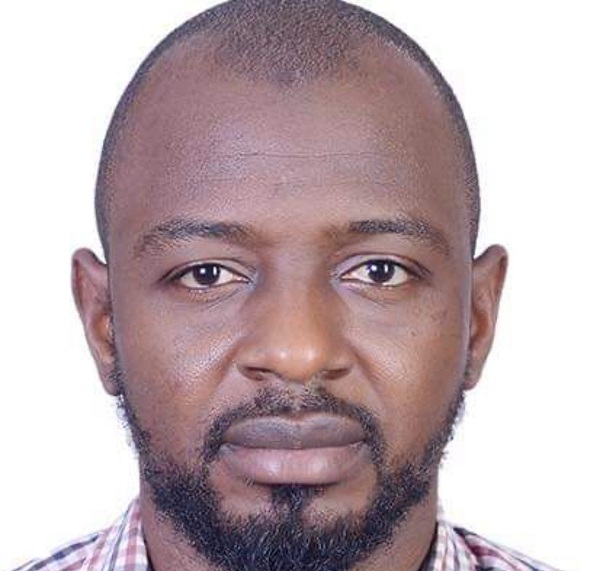

-



 News5 days ago
News5 days agoFuel Price Skyrockets To ₦1000 Per Litre In Some States As Scarcity Sets In
-

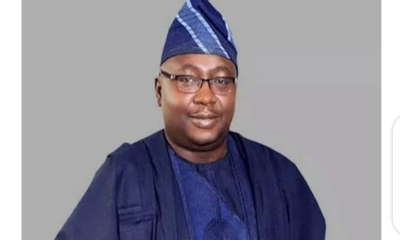

 News4 days ago
News4 days ago“There Would Be total Blackout For Three Months If Electricity Tariff Hike Is Not Implemented ” – Minister Of Power Warns
-



 News4 days ago
News4 days agoFG Declares May 1st Public Holiday To Mark Workers’ Day
-



 News3 days ago
News3 days agoNigerians Seek Woman Who Spoke Out Eloquently Against Fuel Scarcity In Viral 1994 TV Clip
-



 News2 days ago
News2 days agoAnambra State Government Arrests Man For Marrying Off His Underage Daughter
-



 News2 days ago
News2 days agoIPOB Declares May 30th As Sit-at-home Day Across The Southern East States To Honour Biafran Fallen Heroes
-

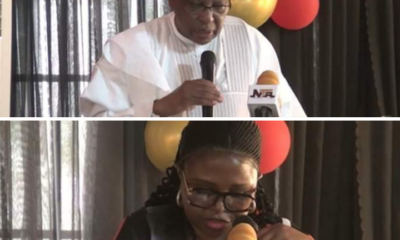

 Education17 hours ago
Education17 hours agoFederal Government Sets To Commence School-To-Work Scheme
-



 News48 mins ago
News48 mins agoLady Dies After Friends Pushed Her Into Boiling Pot Of Fresh Pepper In Delta State






